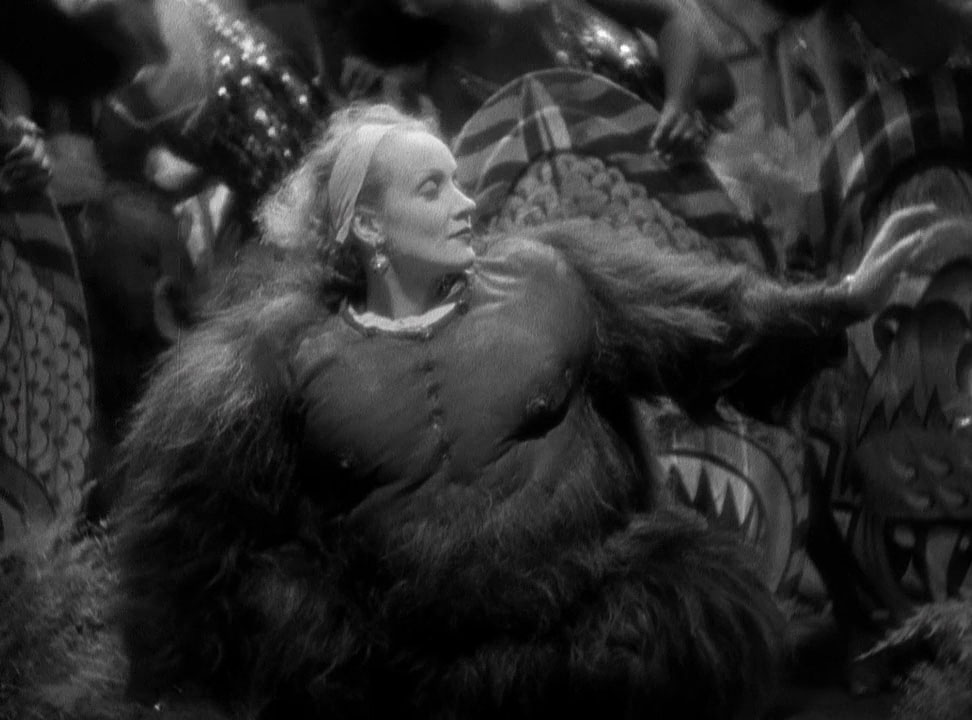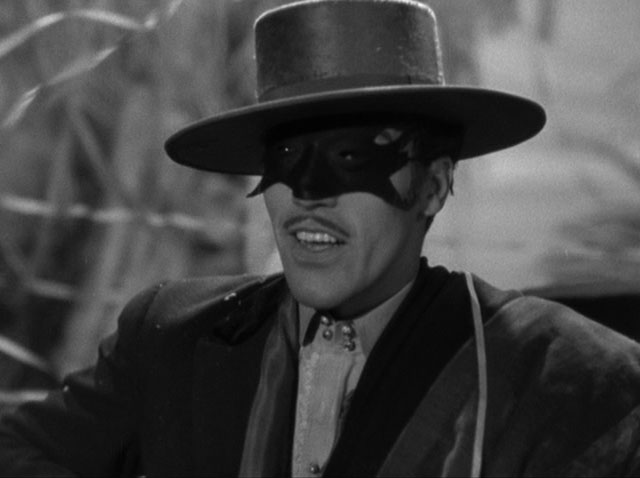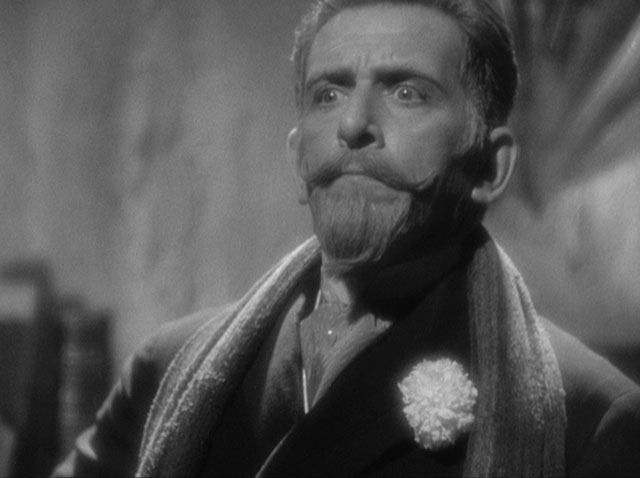“What a charming evening we might have had if you hadn’t been a spy, and I a traitor.”
“Then we might never have met.”
Another Sternberg/Dietrich movie, and this one just kills The Blue Angel, which I thought was overbaked and had too little Dietrich. Here not only is she perfectly lit and doing a better acting job throughout, but the story is a wartime (1915 Austria) spy vs. spy drama, all romance and excitement, more alive and relevant than the period self-punishment of Emil Jannings. Sternberg seems fully comfortable in his sound world now, maybe not pulling as beautiful images as in the silents, when it was all image, but making a movie that fully works. Some good expressive lighting (backlit against windows when she lets Victor escape) and long-held cross-fades.
Marlene with Austrian secret service man Gustav von Seyffertitz (Hymn Book Harry, who performs the wedding in Docks of New York):

The opening titles prepare us for tragedy and sexism, telling us that codename X-27 “might have become the greatest spy in history… if X-27 had not been a woman.” This is referring to the ending, when she lets the enemy spy she loves escape before his execution, which leads to her own. But of course the reason she’s a great spy in the first place is that she’s a woman, able to seduce and sleep with (whoa, pre-code) enemy officers in order to steal information, the Black Book of its time.
At the start, war widow Marlene is out streetwalking to pay the rent (whoa, pre-code!) when she picks up a gentleman with a droopy ‘stache who tests her patriotism, pretending to try recruiting her for anti-Austrian work, and when she has him arrested he reveals that he’s the head of Austrian secret service and actually wants to hire her for pro-Austrian work, argh.
Warner “Charlie Chan” Oland as the spy who shoots himself:

Some veils, feathers and masks later, she’s at a party with more confetti and streamers than I’ve ever seen in one place. She acts interested in Russian Mustache Spy and retires back to his place, where she discovers his secret spy stash, all the while acting super-fucking-cool while he creeps away and kills himself.
The colonel is Victor McLaglen, Lon’s strongman sidekick in The Unholy Three who’d win best actor for The Informer a few years later:

With a distinctive smile like Victor’s, what use is a mask?

Off to unveil the secret identity of the dead spy’s undercover colonel friend from the costume party, which is simple since he has the most excellently recognizable sinister smile. And a cute little mustache – every man has a mustache.
The colonel is onto her spying ways – she’s got him, then lets him escape. She goes to Russia and acts as a timid housekeeper at enemy headquarters, then back home where she sees the grinning colonel again and lets him escapes. Sentenced to death, she asks only for a piano and “any dress I wore when I served my countrymen instead of my country,” so gets killed by rifle squad in her feathers and veil.
Pre-execution, at her piano:






















